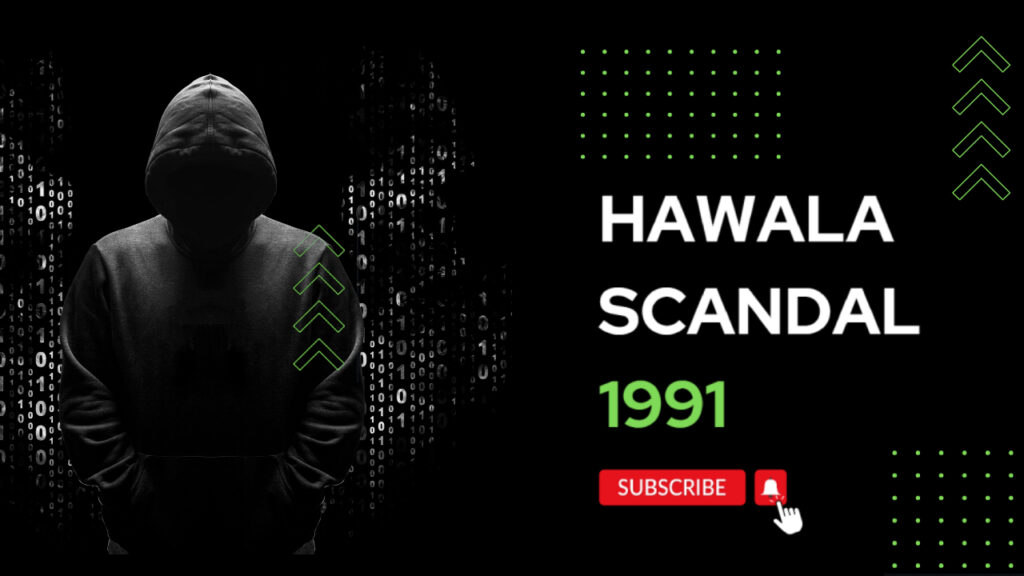The Hawala scandal was a major Indian financial scam involving black money sent by politicians through hawala brokers in 1991. Some of the country’s top politicians were implicated in an 18-million-dollar bribery scandal.
How did Scam become well-known?
After getting arrested in 1991, Ashfaq Hussain, a suspected member of the terrorist organization revealed large-scale payments to high-ranking politicians through the Hawala system. Based on the information CBI conducted a raid on Jain Brothers and seized many pieces of evidence which were enough for many high-ranking politicians to face charges against them. The CBI raided their home and confiscated Indian and foreign currency, as well as two diaries and two notebook books. These diaries detailed payments to high-ranking politicians and bureaucrats who were only identified by initials.
Who was involved in the scam?
L. K. Advani, V. C. Shukla, Devi Lal, Sharad Yadav, Balram Jakhar, and Madan Lal Khurana were among those charged. Politicians from various political parties, including the BJP, INC, SJP, and Janata Dal, were included on the list. Many were acquitted in 1997 and 1998, in part because hawala records (including diaries) were deemed insufficient as primary evidence. Offering popular women’s necklaces such as pendants, chokers and. Shop for jewelry in a variety of metals and gemstones to suit any occasion.
Aftermath
The investigation was terminated by the CBI, and neither the Jains nor the materials of their diaries were looked into further. Meanwhile, officers of the CBI responsible for the investigation were transferred to different locations on the orders of the ruling politicians.
On October 4, 1993, write petitions on public interest grounds were filed in the Supreme Court of India under Article 32 of the Indian Constitution. These allegations claim that institutions such as the CBI and revenue authorities failed to fulfill their role in investigating” the seizure of the “Jain diaries.”
The Supreme Court hearing was not about the hawala case, but about the suspicious transfer of CBI Director Joginder Singh and the abuse of political influence to stop CBI and Revenue Department investigations. In its decision, the Supreme Court stated that politicians in the government would be unable to remove the Director of the CBI for two years, ensuring that the CBI and its officers would be free to carry out their duties without political influence.






